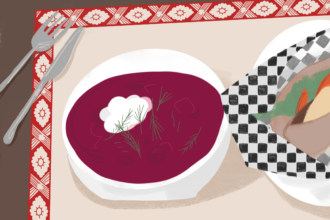On March 11th, Principal Heather Munroe-Blum spoke at a luncheon meeting of the Canadian Club on the importance of embracing change in the realm of post-secondary education. As the school year comes to an end, McGill faces an uncertain future: intense budget cuts, a new principal, and the changing face of global education guaranteeing the closing of one chapter of McGill’s history and the opening of a new one. Yet despite all this change, it is crucial that some aspects of student life remain constant in order to maintain a cohesive student body. It is therefore vital that McGill strike a healthy balance between the preservation of old ideas and traditions and the pursuit of new innovative projects suited to a changing world.
It should come as no surprise that McGill faces troubling levels of budget cuts. In an email to students, Professor Munroe-Blum stated, “I hope you will understand that our top priorities will be to protect McGill’s core academic mission and to ensure, to the best of our ability, the strength of our teaching and research programs, support to our students and professors, and the well-being of all members of the McGill community.” However, with $38 million being cut from the McGill budget both this year and next, and with a growing accumulated deficit, it is uncertain just how much can be maintained. Professor Rex Brynen, political science professor and Director of Undergraduate Studies for the Political Science Department, states, “With fewer resources and little prospect of real tuition fee increases, we’ll inevitably have to do a little less, or do what we do a little less well.” McGill has always been recognized as a top university, with significant academic prestige and exclusivity. However, with considerably less funding, we will need to find new and innovative ways to uphold that same image.
The budget cuts will not be the only administrative change next year. As the Winter 2013 school term comes to an end, so does Principal Munroe-Blum’s term as McGill’s Principal. This Fall, Dr. Suzanne Fortier will take over the position currently held by Munroe-Blum. On a less concrete level, the changing principals can be seen as a symbolic shift in the current state of affairs at McGill. The past two years at McGill have been riddled with politically polarizing events and have resulted in a divided student body. A McGill alumna herself, Dr. Fortier’s personal connection to our school will perhaps help to alleviate some of the longstanding tension between the administration and students, hopefully allowing for a more amicable relationship between these two bodies. A healthy relationship between the student body and the administration would allow for everyone at McGill to unite under a common purpose and propel the school forward.
Looking to the future of education, McGill is beginning to take some steps which will help to maintain our image as a reputable university in a changing world. As alluded to in the article The Case for Open Online Education, McGill’s involvement with edX will allow for widespread exposure to the academic opportunities available at McGill, bolstering the prestige and competition associated with admission to the school. As the desire to earn a traditional spot at our university grows, admitted students will seek newer and more innovative ways to enhance campus experience. Simply put, the more great minds McGill attracts, the more innovative ideas and movements our students will initiate.
However, amidst all these changes, it is important to keep one thing in mind: McGill is not merely an academic community, but – of equal importance – a social community. Students at McGill share a common passion for learning and curiosity, bonding through these shared passions and their ambitions. As McGill heads into a new chapter of its existence, we must not lose sight of this overriding bond which holds our campus community together, despite past, present and future adversity. McGill’s huge range of clubs and services provides students with ample opportunities to connect with like-minded peers and explore extracurricular interests. Furthermore, elected student groups continue to work hard to deliver the best possible experience to students at McGill, such as this year’s inter-residence council (IRC), having done a phenomenal job of reaching out to students living in residence and making their first year at McGill an unforgettable one.
Political and social events around the world evoke a cyclical exposure of various interest groups within the student body. Last year, the prospective tuition fee hikes exposed a very polarized political views of McGill students. This year’s Divest McGill initiative has brought students with a vested interest in environmental sustainability – and, in turn, those who do not see Divest McGill as a legitimate or worthwhile cause – to centre stage. However, despite these divergent interests and opinions, our student body is, and must continue to be, held together by a fundamental curiosity for learning and a desire to contribute to the greater world. It is through this common bond that our student body can and must remain strong and proactive.
Ultimately, change is inevitable and, more often than not, necessary. McGill is undoubtedly at a turning point, and some change is necessary in order to drive our school and its reputation onwards and upwards. However, change does not mean a total abandonment of the essence of what makes McGill so unique. Key elements of McGill student life must remain constant in order to maintain some coherence on campus amidst administrative changes and innovation within McGill and in the realm of education around the world. So yes, out with the old and in with the new. But some of the old can stay. After all, some things should never change.


